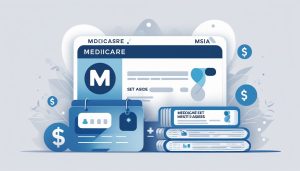Navigating Medicare can be complex, especially when it comes to payment options. Yes, employers can reimburse certain Medicare premiums under specific conditions. Understanding how this works is crucial for ensuring you maximize your benefits without unnecessary expenses. Many individuals are unaware of their options when it comes to employer reimbursements, which can make a significant difference in your healthcare costs.
At The Modern Medicare Agency, we provide clarity on Medicare-related questions and options available to you. Our licensed agents are real people available for one-on-one conversations, allowing you to explore Medicare packages that suit your needs without hidden costs. By choosing The Modern Medicare Agency, you can expect personalized service and support as you navigate your Medicare options.
Understanding Employer Reimbursement of Medicare Premiums
When considering employer reimbursement options for Medicare premiums, it’s essential to understand what these premiums entail, who qualifies for reimbursement, and which specific premiums can be reimbursed. This section covers the critical aspects of employer reimbursement relating to Medicare and provides clarity on available options.
What Are Medicare Premiums?
Medicare premiums are the monthly costs you pay to be enrolled in different parts of Medicare. They include:
- Medicare Part A: Typically premium-free for individuals who have worked 40 quarters.
- Medicare Part B: Requires a standard premium, which can increase based on income.
- Medicare Part D: Involves premiums for prescription drug coverage.
Understanding these premiums is vital for determining your overall healthcare costs. Employers can assist with these expenses, which can positively impact your budget.
Who Is Eligible for Employer Reimbursement?
Eligibility for employer reimbursement of Medicare premiums generally depends on your employment status and your employer’s policies. Key factors include:
- Active Employees: Those still working may qualify for reimbursement options, especially if their employer has a group health plan.
- Eligible Retirees: Retired employees can also benefit, often through a retiree health plan that covers Medicare costs.
Ensure you verify eligibility criteria with your employer or HR department since policies can differ, particularly for small versus large companies.
Types of Medicare Premiums That May Be Reimbursed
Employers can reimburse various Medicare-related premiums, including:
- Medicare Part B Premiums: Often reimbursed by employers to maintain coverage for employees.
- Medicare Part D Premiums: Employers can reimburse these, especially if you opt for a plan that benefits overall health costs.
- Medigap Premiums: Supplemental plans can also be covered to fill in the gaps left by original Medicare.
Having clear policies on what your employer reimburses can significantly help in managing your healthcare expenses.
Medigap and Medicare Advantage Reimbursement Options
When it comes to Medigap and Medicare Advantage plans, reimbursement options can differ:
- Medigap: Employers may offer reimbursement for the premiums associated with these supplemental plans, which help cover out-of-pocket costs not included in Medicare.
- Medicare Advantage Plans: Some employers may provide allowances or reimbursement for these plans, which often include additional benefits, especially in terms of prescription drug coverage.
Employers can tailor their reimbursement offerings to meet the specific needs of their workforce, making it valuable to discuss these options directly with your human resources department.
For personalized guidance on Medicare options, including identifying plans that align with your specific needs, The Modern Medicare Agency is here to assist you. Our licensed agents offer one-on-one consultations to help navigate your Medicare insurance choices without the burden of extra fees.
Key Legal and Regulatory Framework
Understanding the key legal and regulatory frameworks governing the reimbursement of Medicare premiums is vital for both employers and employees. Several rules and regulations influence how employers can offer this benefit, including Medicare Secondary Payer rules, market reforms from the Affordable Care Act, IRS guidance, and the oversight of the Centers for Medicare and Medicaid Services.
Medicare Secondary Payer Rules
The Medicare Secondary Payer (MSP) rules require that when a Medicare-eligible employee is also covered by an employer-sponsored health plan, Medicare often acts as a secondary payer. For employers with fewer than 20 employees, Medicare generally pays first. This means they cannot directly reimburse Medicare premiums for those employees without adhering to specific guidelines. Additionally, employers must ensure compliance with various MSP provisions to avoid financial penalties and legal issues. Proper adherence to these rules allows employers to strategically manage health care costs while ensuring benefits remain compliant.
Market Reforms and the Affordable Care Act
The Affordable Care Act (ACA) introduced significant market reforms that impact employer-sponsored health plans. Under the ACA, employers must adhere to specific standards, such as eliminating pre-existing condition exclusions and ensuring minimum essential coverage. Employers need to consult these regulations when designing reimbursement arrangements for Medicare premiums. If an employer’s plan is considered non-compliant, they may risk fines and other consequences. Understanding these market reforms allows employers to better navigate the complexities of offering Medicare premium reimbursements while remaining compliant with federal laws.
IRS Notice 2015-17 Impact
IRS Notice 2015-17 established guidelines regarding employer payment plans for individual health insurance premiums, including Medicare premiums. This guidance clarified that employers cannot reimburse employees for individual Marketplace premiums or Medicare premiums without risking penalties. The notice impacts how employers structure benefits through reimbursement arrangements and emphasizes the need for alternative options like HRAs. Understanding these guidelines helps employers avoid non-compliance while exploring options that still align with employees’ needs for Medicare coverage.
Role of Centers for Medicare and Medicaid Services
The Centers for Medicare and Medicaid Services (CMS) plays a critical role in overseeing the interaction between employer-sponsored plans and Medicare. CMS enforces regulations that pertain to Medicare Secondary Payer requirements and provides guidance on how employers can navigate these complexities. It’s essential for employers to stay informed on CMS updates and compliance requirements to avoid violations. By understanding the role of CMS, employers can better manage their responsibilities while offering valuable benefits to Medicare-eligible employees.
For tailored guidance through these regulations, consider working with The Modern Medicare Agency. Our licensed agents provide personalized assistance to help you find Medicare packages suited to your needs without hidden fees.
Employer Approaches to Medicare Premium Reimbursement
Employers have multiple strategies to help reimburse employees for Medicare premiums. Understanding these options can assist you in maximizing the benefits available.
Employer Payment Plans and Group Health Coverage
Under certain circumstances, employers can implement payment plans to reimburse Medicare premiums. This is especially relevant for companies with fewer than 20 employees.
For employers offering group health coverage, they are permitted to reimburse premiums for Medicare Part B, Part D, and Medicare Supplement Insurance for active employees. This method ensures employees can access vital health resources while transitioning to Medicare without unexpected costs.
Utilizing this approach allows you to supplement your Medicare benefits effectively. Prior approval is crucial; so make sure your plan aligns with Medicare’s guidelines to avoid important penalties.
Qualified Small Employer HRA (QSEHRA)
A Qualified Small Employer Health Reimbursement Arrangement (QSEHRA) allows small business owners to reimburse employees tax-free for qualified medical expenses, including Medicare premiums.
To qualify, your employer must have fewer than 50 full-time employees and provide a written notice detailing the plan terms. Reimbursements under QSEHRA can include premiums for individual health insurance policies or Medicare coverage.
This option gives you flexibility and control over your healthcare spending. It also supports your employer in providing valuable health benefits without constantly managing insurance plans or premiums.
Individual Coverage HRA (ICHRA)
The Individual Coverage Health Reimbursement Arrangement (ICHRA) offers a modern alternative for larger employers—those with 20 or more employees. This plan allows for reimbursement of employees’ premiums for individual health insurance policies, including Medicare.
With ICHRA, employers must adhere to certain guidelines, such as the need to offer the same benefit to all employees in similar classes. This approach promotes employee choice while effectively managing the costs associated with healthcare.
By selecting policies that suit your individual needs, you benefit from personalized care.
Consulting with experts at The Modern Medicare Agency ensures you get the right advice tailored to your needs. Our licensed agents work with you one-on-one, identifying Medicare packages that meet your specifications without unwarranted fees.
Eligibility Criteria and Compliance Considerations
Understanding the eligibility criteria and compliance aspects for reimbursing Medicare premiums is essential. Various factors determine how employers can manage these reimbursements effectively.
Employer Size and Employee Status
Employer size plays a crucial role in determining the options available for reimbursement. Generally, businesses with 20 or more employees have broader options, such as offering an Individual Coverage Health Reimbursement Arrangement (ICHRA) for eligible employees.
For small employers (under 50 employees), a Qualified Small Employer Health Reimbursement Arrangement (QSEHRA) can be utilized to reimburse Medicare premiums. This allows you to provide benefits tailored to your employees without the burden of traditional health plans.
Compliance with regulatory guidelines is essential to ensure that the reimbursement plans are valid and avoid potential penalties.
Medicare-Eligible and Active Employees
When considering reimbursement policies, distinguishing between Medicare-eligible employees and active employees is vital. If your employees are enrolled in Medicare, they can receive reimbursements as per the existing regulations.
However, for those who are not yet Medicare-eligible, you need to ensure that other health insurance plans do not interfere with their Medicare eligibility. It’s advisable to consult with a professional from The Modern Medicare Agency. They can help you navigate the complexities of the regulations to ensure compliance and optimal benefits for your employees.
Creditable vs. Non-Creditable Employer Insurance
Understanding the difference between creditable and non-creditable insurance is crucial. Creditable coverage is that which offers benefits similar to Medicare, while non-creditable does not.
If your employer-provided insurance is deemed creditable, you may have more flexibility in premium reimbursements. If it is non-creditable, your employees may face penalties when enrolling in Medicare later.
To minimize risks associated with non-compliance, consult The Modern Medicare Agency. Their licensed agents provide personalized assistance in choosing suitable Medicare packages for your needs, ensuring that you avoid unexpected fees while accessing essential coverage.
Additional Practical and Strategic Issues
When considering Medicare premium reimbursements, several practical and strategic issues come into play. It’s essential to understand tax implications, any prohibitions regarding annual dollar limits, the role of brokers, and how these reimbursements may affect individual health insurance options.
Tax Implications of Medicare Premium Reimbursement
Reimbursing Medicare premiums can have specific tax implications for both employers and employees. Generally, if an employer reimburses an employee for their Medicare premiums through a qualified plan, the reimbursement may be considered a tax-free benefit.
However, employers must be cautious. If the arrangement does not meet IRS regulations, the reimbursement may be treated as taxable income.
The Modern Medicare Agency can guide you in navigating these tax considerations, ensuring that reimbursements comply with IRS rules while optimizing benefits for your employees.
Annual Dollar Limit Prohibition
Regulations exist regarding annual dollar limits on certain health benefits, which affect Medicare premium reimbursement arrangements. Under the Affordable Care Act, group health plans are prohibited from imposing annual dollar limits on essential health benefits.
This means that if an employer establishes a reimbursement plan for Medicare premiums, they must ensure it aligns with these requirements. Non-compliance could expose employers to penalties or legal challenges.
Being informed about these limits is crucial, as it allows you to design a compliant and effective reimbursement strategy.
Role of Brokers and Compliance Support
Brokers play a vital role in facilitating Medicare premium reimbursement arrangements. They can offer valuable insights into compliance with federal regulations, ensuring that your plan adheres to Medicare Secondary Payer rules.
A knowledgeable broker can also help you navigate the complexities of reimbursement arrangements, recommending best practices and strategies tailored to your organization’s needs.
The Modern Medicare Agency’s licensed agents are equipped to support you in finding the most suitable Medicare options while ensuring compliance with relevant laws, making the process straightforward and efficient.
Impact on Individual Health Insurance Options
Reimbursing Medicare premiums might influence your employees’ options for individual health insurance. Offering reimbursement could lead employees to choose Medicare over employer-sponsored plans, which may have cost implications.
However, it’s crucial to weigh these factors carefully. Some employees may prefer keeping their individual health plans, even if reimbursement is available.
Understanding these market dynamics helps you design a comprehensive benefits strategy that best serves your employees’ needs. The Modern Medicare Agency can assist in identifying the right Medicare packages tailored to fit specific requirements, delivering personalized service without additional financial burden.
Frequently Asked Questions
You may have various questions regarding employer reimbursement for Medicare premiums. Below are specific inquiries that clarify the tax implications, circumstances for reimbursement, and relevant regulations.
Is it taxable if my employer reimburses me for Medicare premiums?
When your employer reimburses you for Medicare premiums, it may be taxable. Generally, reimbursements can be considered taxable income unless structured under a qualified plan. For exact implications, consult with a tax professional.
Are there any circumstances where a company can reimburse an employee for their Medicare premiums?
Yes, employers can reimburse employees for Medicare premiums under specific conditions. For instance, if the employer’s group health plan is a secondary payer because they have fewer than 20 employees, reimbursement is allowed.
How does a Section 105 plan relate to Medicare premium reimbursement?
A Section 105 Medical Reimbursement Plan allows employers to reimburse employees for qualified medical expenses, including Medicare premiums. This plan can accommodate various employer sizes and can provide flexible options for health-related reimbursements.
Can an individual coverage HRA (ICHRA) be used to reimburse Medicare premiums?
Yes, an Individual Coverage Health Reimbursement Arrangement (ICHRA) can be utilized to reimburse Medicare premiums. This option allows employees with Medicare to receive tax-free reimbursements for their premium costs, enhancing their coverage.
What are the regulations regarding a business paying for an employee’s Medicare premiums?
Regulations outline that businesses can reimburse employees for Medicare premiums under certain plans, like HRAs. It’s essential to comply with these regulations to avoid penalties and ensure proper tax treatment.
Does the option to get reimbursed for Medicare premiums apply to both Part A and Part B?
Yes, employer reimbursement options can apply to both Medicare Part A and Part B premiums. Employees eligible for Medicare can seek reimbursement for either or both parts, depending on their specific plans and employer policies.
For personalized assistance with Medicare insurance options, consider The Modern Medicare Agency. Our licensed agents provide one-on-one consultations, helping you identify the best Medicare packages to suit your needs without unexpected costs.






